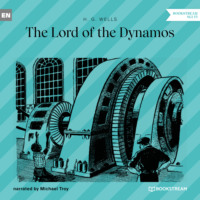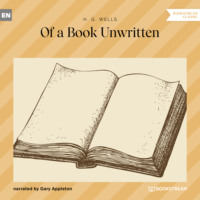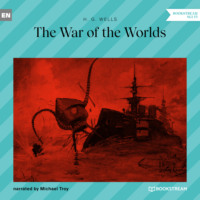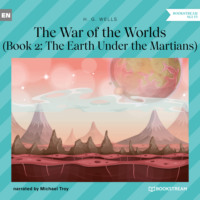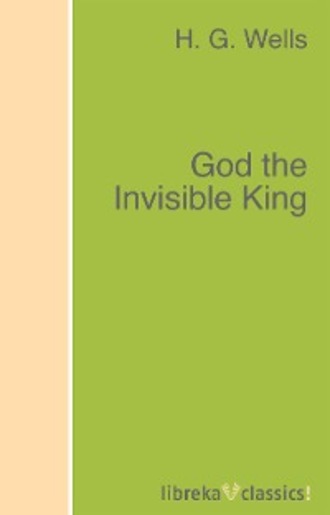
Полная версия
God the Invisible King
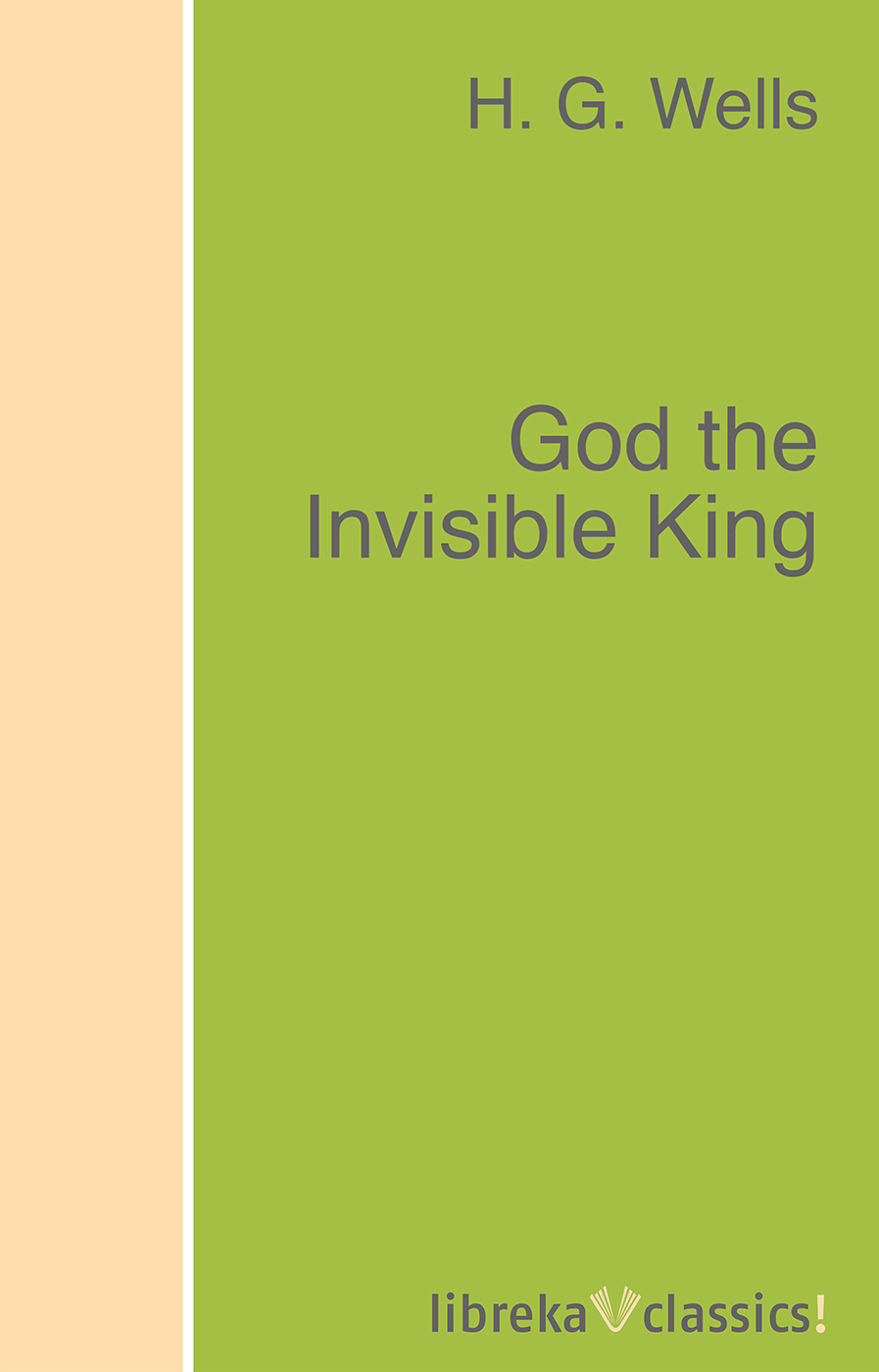

Titel: God the Invisible King
von Scott Hemphill, L. M. Montgomery, L. Frank Baum, John Milton, René Descartes, Baroness Emmuska Orczy Orczy, Karl Marx, Friedrich Engels, Edgar Rice Burroughs, Unknown, Norman F. Joly, Norman Coombs, David Slowinski, Mark Twain, Henry David Thoreau, Stephen Crane, John Goodwin, Nathaniel Hawthorne, Winn Schwartau, Odd De Presno, Sir Walter Scott, Jules Verne, Mary Wollstonecraft Shelley, United States. Central Intelligence Agency, United States, Canada, Willa Sibert Cather, Anthony Hope, Edwin Abbott Abbott, Charles Dickens, Frederick Douglass, William Shakespeare, Bruce Sterling, Franklin Delano Roosevelt, Jane Austen, Thomas Hardy, Sir Arthur Conan Doyle, Edna St. Vincent Millay, Gene Stratton-Porter, Richard McGowan, Frances Hodgson Burnett, United States. Bureau of the Census, Electronic Frontier Foundation, Robert Louis Stevenson, Anonymous, Jerry Bonnell, Robert Nemiroff, Andrew Lang, G. K. Chesterton, John Bunyan, Sunzi 6th cent. B.C., Harold Frederic, Mary Wollstonecraft, Victor Hugo, René Doumic, Upton Sinclair, Virginia Woolf, George Eliot, Thomas Paine, Benjamin Franklin, Plato, Samuel Taylor Coleridge, Ruth M. Sprague, William Dean Howells, Wilkie Collins, Jean Webster, H. G. Wells, Kate Chopin, Mark Eliot Laxer, Louisa May Alcott, Frank Norris, Edith Wharton, S. D. Humphrey, Henry Hunt Snelling, William Morris, Mrs. Susanna Rowson, Christopher Morley, Sax Rohmer, Oscar Wilde, Gaston Leroux, Henry James, Project Gutenberg, Harriet Beecher Stowe, Various, Robert W. Service, A. B. Paterson, Henry Lawson, Jack London, Laozi, D. H. Lawrence, Julius Caesar, Joseph Conrad, W. Somerset Maugham, George MacDonald, Marcus Tullius Cicero, Virgil, Theodore Dreiser, Giuseppe Salza, Rudyard Kipling, ca. 50 BCE-16 BCE Sextus Propertius, Robert A. Harris, William Wells Brown, graf Leo Tolstoy, Omar Khayyám, Michael Hart, Library of Congress. Copyright Office, Coalition for Networked Information, Geoffrey Chaucer, Adam Lindsay Gordon, Hiram Corson, Robert Browning, Amy Lowell, Rupert Brooke, Joyce Kilmer, John Gower, Saki, Kenneth Grahame, Anna Sewell, Martin Luther, Philipp Melanchthon, National Atomic Museum, Alexander William Kinglake, Charles John Cutcliffe Wright Hyne, Amelia Edith Huddleston Barr, James Branch Cabell, Bayard Taylor, Horatio Alger, Booth Tarkington, Hjalmar Hjorth Boyesen, Michael Husted, Émile Gaboriau, Jerome K. Jerome, Stephen Vincent Benét, Edwin Arlington Robinson, J. Frank Dobie, Joseph Rodman Drake, Eliot Gregory, John Fox, John Muir, Richard Harding Davis, Edgar A. Guest, Mary Roberts Rinehart, Thomas Nelson Page, Sir Walter Alexander Raleigh, Rebecca Harding Davis, Charles Alexander Eastman, Zitkala-Sa, Marie L. McLaughlin, J. M. Barrie, Bram Stoker, Hesiod, Edna Ferber, John McCrae, Anna Howard Shaw, Elizabeth Garver Jordan, Frances Jenkins Olcott, P.-J. Proudhon, Eleanor H. Porter, Mary Hunter Austin, Sarah Orne Jewett, Russell Herman Conwell, Daniel Defoe, Henry Benjamin Wheatley, Ambrose Bierce, Nettie Garmer Barker, Martí Joan de Galba, Joanot Martorell, Oliver Goldsmith, Zane Grey, Winston Churchill, Arthur Machen, L. Cranmer-Byng, Torquato Tasso, H. De Vere Stacpoole, Elizabeth Cleghorn Gaskell, Frank Richard Stockton, Rutherford Hayes Platt, Sara Teasdale, Samuel Smiles, W. E. B. Du Bois, Phillis Wheatley, Elbert Hubbard, Richard Jefferies, George Henry Borrow, Sherwood Anderson, Vachel Lindsay, David Graham Phillips, Harry Houdini, Eugene Field, Gustave Le Bon, Henry Brodribb Irving, William Healy, Mary Tenney Healy, Charles Godfrey Leland, Ralph Parlette, Don Marquis, Richard Le Gallienne, Stewart Edward White, Andrew Steinmetz, Madame de La Fayette, Abbé Prévost, Honoré de Balzac, Charles W. Chesnutt, Sara Cone Bryant, William Booth, James Nasmyth, Enrico Ferri, Joe Hutsko, Miriam Michelson, Oliver Optic, Victor MacClure, Calamity Jane, Gertrude Franklin Horn Atherton, Dinah Maria Mulock Craik, Henry J. Coke, Kate Douglas Smith Wiggin, Victor [pseud.] Appleton, Carlo Collodi, Hugh Lofting, John Philip Sousa, Andrew Dickson White, Joseph Sheridan Le Fanu, Isaac Taylor Headland, Amy Steedman, B. M. Bower, William Tuckwell, Clarence Edgar Johnson, Sinclair Lewis, Rex Stout, Carl R. Maag, Steve Rohrer, Mariano Azuela, Royall Tyler, John Buchan, Ross Kay, J. L. Kennon, Eros Urides, Friedrich Schiller, William Cowper Brann, Adelaide L. Fries, Beatrix Potter, Mary Lamb, Charles Lamb, William Blake, Francis Bacon, Samuel Johnson, Tadashi Nakashima, Sidney Lanier, Edward Jenkins, Harriet E. Wilson, Ellen Craft, William Craft, Sir Thomas Browne, Alexander H. Japp, Guy de Maupassant, Thomas Bailey Aldrich, Snorri Sturluson, William Makepeace Thackeray, Fyodor Dostoyevsky, M. G. Lewis, Lucan, Edwin Lester Linden Arnold, Frank Bird Linderman, Tingfang Wu, Baron Alfred Tennyson Tennyson, Japan, Lodovico Ariosto, Alan Seeger, Anthony Trollope, Lewis Carroll, William James, Jonathan Swift, Edward Bellamy, Richard de Bury, Charles Mackay, Eliza Burt Gamble, R. M. Ballantyne, Fanny Van de Grift Stevenson, Mrs. Sutherland Orr, William Sharp, 4th century Smyrnaeus Quintus, Noah Webster, Russ Walter, Plutarch, Charles Kingsley, Frances Ellen Watkins Harper, Sarojini Naidu, Maksim Gorky, Greg Fee, Izaak Walton, U.S. Arms Control and Disarmament Agency, United States. Army. Corps of Engineers. Manhattan District, European Union, Alice Moore Dunbar-Nelson, Bertrand Russell, James Whitcomb Riley, S. Weir Mitchell, Horace Walpole, John Ruskin, Martha Young, Richard Lovelace, Henry Van Dyke, Michael Fairless, E. W. Hornung, Henry Rider Haggard, Edward Sylvester Ellis, Laura Lee Hope, Lafcadio Hearn, William Ernest Henley, John Clark Ridpath, G. Mercer Adam, Charles Keyser Edmunds, John A. Carpenter, Steven Levy, Edward Gibbon, Henry Clay, John C. Calhoun, Thomas Hart Benton, Arthur Brisbane, William Godwin, Walter L. Pyle, George M. Gould, Dornford Yates, Saint John of Damascus, Oliver Wendell Holmes, Hendrik Willem Van Loon, Isabella L. Bird, J. A. Munk, Sir W. S. Gilbert, Sir Max Beerbohm, George Whale, Edmund Day, Marion Mills Miller, John Murray, Mary Mapes Dodge, Abraham Merritt, Anne Brontë, Emily Brontë, Kakuzo Okakura, E. Nesbit, Charlotte Brontë, William J. Claxton, Christopher Marlowe, Sir John Mandeville, Jos. E. Badger, Titus Lucretius Carus, Charles Brockden Brown, Frederick Arthur Ambrose Talbot, Stendhal, Laurence Sterne, F. Scott Fitzgerald, Sophocles, Sir Arthur Sullivan, Graf Ilia Lvovich Tolstoi, Alexis de Tocqueville, H. Barber, Herbert Newton Casson, Frank Lewis Dyer, Thomas Commerford Martin, Frank Tymon, ca. 3rd cent. B.C. Apollonius Rhodius, 12th cent. de Troyes Chrétien, J. Walker McSpadden, Thorstein Veblen, R. D. Blackmore, William Gilmore Simms, Henry Timrod, M. L. Weems, Baron Thomas Babington Macaulay Macaulay, Francis Hopkinson Smith, Mary White Rowlandson, John Dewey, Margaret Mayo, John Mackenzie Bacon, Owen Wister, Agatha Christie, Epictetus, Evelyn Charles Vivian, W. Lockwood Marsh, Washington Irving, John Greenleaf Whittier, James Russell Lowell, Elizabeth Stoddard, Lady Lucie Duff Gordon, Princess Der Ling, John Quincy Adams, F. Marion, Bayard Veiller, Marvin Hill Dana, Octave Chanute, William James Jackman, Thomas Herbert Russell, Bernard Shaw, John Filson, Mikhail Yurevich Lermontov, Alice Isabel Hazeltine, Benedictus de Spinoza, William Dobein James, United States. Presidents., Gustavus Hindman Miller, St. Jude, R. U. Sirius, Mrs. W. G. Waters, Edgar Allan Poe, Abram Joseph Ryan, James Fenimore Cooper, W. H. Hudson, Charles Darwin, Marcet Haldeman-Julius, E. Haldeman-Julius, Robert Southey, Henry Kendall, Howard Pyle, Alexandre Dumas père, Thomas Love Peacock, Cal Stewart, Mary Eleanor Wilkins Freeman, John Munro, Edward Lear, Ellen Key, Thomas Wentworth Higginson, J. M. Synge, Miguel de Cervantes Saavedra, Dante Alighieri, Francis Parkman, Lloyd Osbourne, Graf von Benjamin Rumford, George Grossmith, Weedon Grossmith, Wilfred Owen, Edmund Venables, David Livingstone, George Meredith, Joseph McCabe
ISBN 978-3-7429-0994-7
Alle Rechte vorbehalten.
Es ist ohne vorherige schriftliche Erlaubnis nicht gestattet, dieses Werk im Ganzen oder in Teilen zu vervielfältigen oder zu veröffentlichen.
GOD THE INVISIBLE KING
by H. G. Wells
Contents
PREFACE
GOD THE INVISIBLE KING
CHAPTER THE FIRST CHAPTER THE SECOND CHAPTER THE THIRD CHAPTER THE FOURTH CHAPTER THE FIFTH CHAPTER THE SIXTH CHAPTER THE SEVENTH THE COSMOGONY OF MODERN RELIGION HERESIES; OR THE THINGS THAT GOD IS NOT THE LIKENESS OF GOD THE RELIGION OF ATHEISTS THE INVISIBLE KING MODERN IDEAS OF SIN AND DAMNATION THE IDEA OF A CHURCH
PREFACE
This book sets out as forcibly and exactly as possible the religious belief of the writer. That belief is not orthodox Christianity; it is not, indeed, Christianity at all; its core nevertheless is a profound belief in a personal and intimate God. There is nothing in its statements that need shock or offend anyone who is prepared for the expression of a faith different from and perhaps in several particulars opposed to his own. The writer will be found to be sympathetic with all sincere religious feeling. Nevertheless it is well to prepare the prospective reader for statements that may jar harshly against deeply rooted mental habits. It is well to warn him at the outset that the departure from accepted beliefs is here no vague scepticism, but a quite sharply defined objection to dogmas very widely revered. Let the writer state the most probable occasion of trouble forthwith. An issue upon which this book will be found particularly uncompromising is the dogma of the Trinity. The writer is of opinion that the Council of Nicaea, which forcibly crystallised the controversies of two centuries and formulated the creed upon which all the existing Christian churches are based, was one of the most disastrous and one of the least venerable of all religious gatherings, and he holds that the Alexandrine speculations which were then conclusively imposed upon Christianity merit only disrespectful attention at the present time. There you have a chief possibility of offence. He is quite unable to pretend any awe for what he considers the spiritual monstrosities established by that undignified gathering. He makes no attempt to be obscure or propitiatory in this connection. He criticises the creeds explicitly and frankly, because he believes it is particularly necessary to clear them out of the way of those who are seeking religious consolation at this present time of exceptional religious need. He does little to conceal his indignation at the role played by these dogmas in obscuring, perverting, and preventing the religious life of mankind. After this warning such readers from among the various Christian churches and sects as are accessible to storms of theological fear or passion to whom the Trinity is an ineffable mystery and the name of God almost unspeakably awful, read on at their own risk. This is a religious book written by a believer, but so far as their beliefs and religion go it may seem to them more sceptical and more antagonistic than blank atheism. That the writer cannot tell. He is not simply denying their God. He is declaring that there is a living God, different altogether from that Triune God and nearer to the heart of man. The spirit of this book is like that of a missionary who would only too gladly overthrow and smash some Polynesian divinity of shark's teeth and painted wood and mother-of-pearl. To the writer such elaborations as "begotten of the Father before all worlds" are no better than intellectual shark's teeth and oyster shells. His purpose, like the purpose of that missionary, is not primarily to shock and insult; but he is zealous to liberate, and he is impatient with a reverence that stands between man and God. He gives this fair warning and proceeds with his matter.
His matter is modern religion as he sees it. It is only incidentally and because it is unavoidable that he attacks doctrinal Christianity.
In a previous book, "First and Last Things" (Constable and Co.), he has stated his convictions upon certain general ideas of life and thought as clearly as he could. All of philosophy, all of metaphysics that is, seems to him to be a discussion of the relations of class and individual. The antagonism of the Nominalist and the Realist, the opposition of the One and the Many, the contrast of the Ideal and the Actual, all these oppositions express a certain structural and essential duality in the activity of the human mind. From an imperfect recognition of that duality ensue great masses of misconception. That was the substance of "First and Last Things." In this present book there is no further attack on philosophical or metaphysical questions. Here we work at a less fundamental level and deal with religious feeling and religious ideas. But just as the writer was inclined to attribute a whole world of disputation and inexactitudes to confused thinking about the exact value of classes and terms, so here he is disposed to think that interminable controversies and conflicts arise out of a confusion of intention due to a double meaning of the word "God"; that the word "God" conveys not one idea or set of ideas, but several essentially different ideas, incompatible one with another, and falling mainly into one or other of two divergent groups; and that people slip carelessly from one to the other of these groups of ideas and so get into ultimately inextricable confusions.
The writer believes that the centuries of fluid religious thought that preceded the violent ultimate crystallisation of Nicaea, was essentially a struggle—obscured, of course, by many complexities—to reconcile and get into a relationship these two separate main series of God-ideas.
Putting the leading idea of this book very roughly, these two antagonistic typical conceptions of God may be best contrasted by speaking of one of them as God-as-Nature or the Creator, and of the other as God-as-Christ or the Redeemer. One is the great Outward God; the other is the Inmost God. The first idea was perhaps developed most highly and completely in the God of Spinoza. It is a conception of God tending to pantheism, to an idea of a comprehensive God as ruling with justice rather than affection, to a conception of aloofness and awestriking worshipfulness. The second idea, which is opposed to this idea of an absolute God, is the God of the human heart. The writer would suggest that the great outline of the theological struggles of that phase of civilisation and world unity which produced Christianity, was a persistent but unsuccessful attempt to get these two different ideas of God into one focus. It was an attempt to make the God of Nature accessible and the God of the Heart invincible, to bring the former into a conception of love and to vest the latter with the beauty of stars and flowers and the dignity of inexorable justice. There could be no finer metaphor for such a correlation than Fatherhood and Sonship. But the trouble is that it seems impossible to most people to continue to regard the relations of the Father to the Son as being simply a mystical metaphor. Presently some materialistic bias swings them in a moment of intellectual carelessness back to the idea of sexual filiation.
And it may further be suggested that the extreme aloofness and inhumanity, which is logically necessary in the idea of a Creator God, of an Infinite God, was the reason, so to speak, for the invention of a Holy Spirit, as something proceeding from him, as something bridging the great gulf, a Comforter, a mediator descending into the sphere of the human understanding. That, and the suggestive influence of the Egyptian Trinity that was then being worshipped at the Serapeum, and which had saturated the thought of Alexandria with the conception of a trinity in unity, are probably the realities that account for the Third Person of the Christian Trinity. At any rate the present writer believes that the discussions that shaped the Christian theology we know were dominated by such natural and fundamental thoughts. These discussions were, of course, complicated from the outset; and particularly were they complicated by the identification of the man Jesus with the theological Christ, by materialistic expectations of his second coming, by materialistic inventions about his "miraculous" begetting, and by the morbid speculations about virginity and the like that arose out of such grossness. They were still further complicated by the idea of the textual inspiration of the scriptures, which presently swamped thought in textual interpretation. That swamping came very early in the development of Christianity. The writer of St. John's gospel appears still to be thinking with a considerable freedom, but Origen is already hopelessly in the net of the texts. The writer of St. John's gospel was a free man, but Origen was a superstitious man. He was emasculated mentally as well as bodily through his bibliolatry. He quotes; his predecessor thinks.
But the writer throws out these guesses at the probable intentions of early Christian thought in passing. His business here is the definition of a position. The writer's position here in this book is, firstly, complete Agnosticism in the matter of God the Creator, and secondly, entire faith in the matter of God the Redeemer. That, so to speak, is the key of his book. He cannot bring the two ideas under the same term God. He uses the word God therefore for the God in our hearts only, and he uses the term the Veiled Being for the ultimate mysteries of the universe, and he declares that we do not know and perhaps cannot know in any comprehensible terms the relation of the Veiled Being to that living reality in our lives who is, in his terminology, the true God. Speaking from the point of view of practical religion, he is restricting and defining the word God, as meaning only the personal God of mankind, he is restricting it so as to exclude all cosmogony and ideas of providence from our religious thought and leave nothing but the essentials of the religious life.
Many people, whom one would class as rather liberal Christians of an Arian or Arminian complexion, may find the larger part of this book acceptable to them if they will read "the Christ God" where the writer has written "God." They will then differ from him upon little more than the question whether there is an essential identity in aim and quality between the Christ God and the Veiled Being, who answer to their Creator God. This the orthodox post Nicaean Christians assert, and many pre-Nicaeans and many heretics (as the Cathars) contradicted with its exact contrary. The Cathars, Paulicians, Albigenses and so on held, with the Manichaeans, that the God of Nature, God the Father, was evil. The Christ God was his antagonist. This was the idea of the poet Shelley. And passing beyond Christian theology altogether a clue can still be found to many problems in comparative theology in this distinction between the Being of Nature (cf. Kant's "starry vault above") and the God of the heart (Kant's "moral law within"). The idea of an antagonism seems to have been cardinal in the thought of the Essenes and the Orphic cult and in the Persian dualism. So, too, Buddhism seems to be "antagonistic." On the other hand, the Moslem teaching and modern Judaism seem absolutely to combine and identify the two; God the creator is altogether and without distinction also God the King of Mankind. Christianity stands somewhere between such complete identification and complete antagonism. It admits a difference in attitude between Father and Son in its distinction between the Old Dispensation (of the Old Testament) and the New. Every possible change is rung in the great religions of the world between identification, complete separation, equality, and disproportion of these Beings; but it will be found that these two ideas are, so to speak, the basal elements of all theology in the world. The writer is chary of assertion or denial in these matters. He believes that they are speculations not at all necessary to salvation. He believes that men may differ profoundly in their opinions upon these points and still be in perfect agreement upon the essentials of religion. The reality of religion he believes deals wholly and exclusively with the God of the Heart. He declares as his own opinion, and as the opinion which seems most expressive of modern thought, that there is no reason to suppose the Veiled Being either benevolent or malignant towards men. But if the reader believes that God is Almighty and in every way Infinite the practical outcome is not very different. For the purposes of human relationship it is impossible to deny that God PRESENTS HIMSELF AS FINITE, as struggling and taking a part against evil.
The writer believes that these dogmas of relationship are not merely extraneous to religion, but an impediment to religion. His aim in this book is to give a statement of religion which is no longer entangled in such speculations and disputes.
Let him add only one other note of explanation in this preface, and that is to remark that except for one incidental passage (in Chapter IV., 1), nowhere does he discuss the question of personal immortality. [It is discussed in "First and Last Things," Book IV, 4.] He omits this question because he does not consider that it has any more bearing upon the essentials of religion, than have the theories we may hold about the relation of God and the moral law to the starry universe. The latter is a question for the theologian, the former for the psychologist. Whether we are mortal or immortal, whether the God in our hearts is the Son of or a rebel against the Universe, the reality of religion, the fact of salvation, is still our self-identification with God, irrespective of consequences, and the achievement of his kingdom, in our hearts and in the world. Whether we live forever or die tomorrow does not affect righteousness. Many people seem to find the prospect of a final personal death unendurable. This impresses me as egotism. I have no such appetite for a separate immortality. God is my immortality; what, of me, is identified with God, is God; what is not is of no more permanent value than the snows of yester-year.
H. G. W.
Dunmow, May, 1917.



